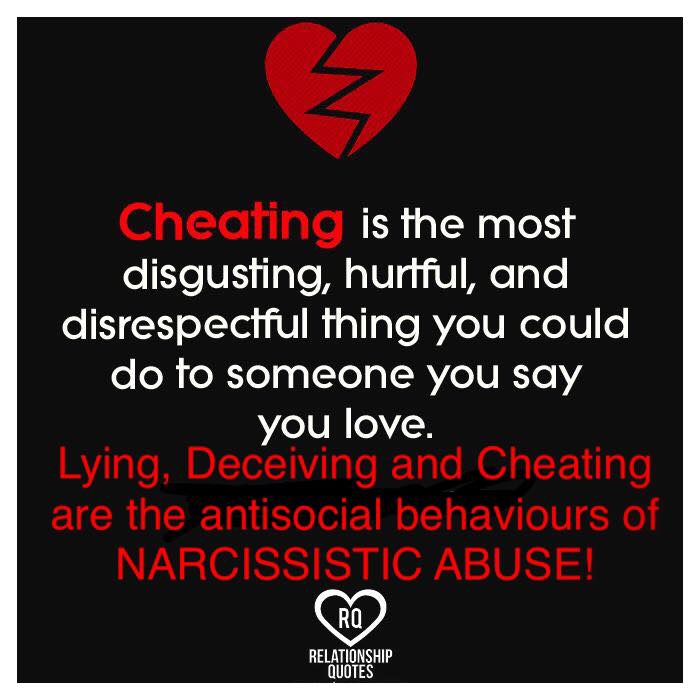Having no remorse means having no problem repeatedly attacking someone's soul.
|
The words "I love you" sound so good, you give a pass on neglectful behavior. Psychopaths take advantage of your forgiving nature, time and time again. Remorseless.
Having no remorse means having no problem repeatedly attacking someone's soul.
0 Comments
Watch out!
Excerpts from "PSYCHOPATHIC SEDUCTION SECRETS, REVEALED!" by Adelyn Birch, Oct 1, 2014, Psychopaths and Love Photo courtesy of Stockvault Psychopaths, aka sociopaths, are all around us. They are pathological liars, con artists, and false friends. They pretend to love and care - so they ensnare victims into phoney relationships. People are merely toys and tools, in their eyes, and easily discarded. They have a neurological lack of conscience that gives them an internal sense of superiority to the rest of us. There are three major failures in society that (secretly) enable sociopaths to engage in, and get away with, their atrocious behavior:
Approximately 39 million people in the United States may have exploitative personality disorders — antisocial, narcissistic or borderline. These are the people I refer to as “sociopaths.” Most of us don’t know they exist. In 2011, the scientific journal Innovations in Clinical Neuroscience published an article that examined previous studies of the prevalence of personality disorders in the United States and around the world. The authors examined five American and four international studies, dating back to 1989, and the studies consistently showed that about 10% of the general population has personality disorders. Cultural myths that blind us to danger All our lives, we hear cultural messages in church, school and the media, like the following: “We’re all created equal.” “We all just want to be loved.” “Everybody has good inside.” Unfortunately, these statements are not true for everybody. They are only true for the majority of the population who are capable of normal love and empathy. The statements are not true for the approximately 16% who have antisocial, narcissistic, or borderline personality disorders. No one tells us that there are exceptions to these feel-good maxims. No one tells us that human predators live among us, and that we need to protect ourselves from them. In fact, we hear messages that put us in even more danger, like: “Everyone deserves a second chance.” “Give him/her the benefit of the doubt.” “We all have issues/problems/flaws.” The bottom line: We don’t know that we likely are around personality-disordered people who want to take advantage of us. And when we do experience or witness bad behavior, we’re told to explain it away. Human beings are social animals, and our survival as a species was assured over the millennia because we developed the ability to trust each other. Trust is built into our DNA. When sociopaths target us for manipulation, the first step is taking advantage of our trust. They use love bombing, deception and the pity play to reel us in. The big picture of our cultural messages:
Excerpt from, "How the messages we hear all our lives keep us vulnerable to sociopaths", by Donna Andersen, Lovefraud.com, Jan 9, 2017.
Image courtesy Spiderpic.com It’s important in any kind of relationship that we learn to identify the red flags when interacting with people who display malignant narcissism and/or antisocial traits, so we can better protect ourselves from exploitation and abuse, set appropriate boundaries with others, and make informed decisions about who we keep in our lives. Understanding the nature of these toxic interactions and how they affect us has an enormous impact on our ability to engage in self-care.
Watch out for the following covert manipulation tactics when you’re dating someone or in any other kind of relationship: 1. The Idealization-Devaluation-Discard Phase Narcissists and those with antisocial traits tend to subject romantic partners through three phases within a relationship. The idealization phase (which often happens most strongly during the early stages of dating or a relationship) consists of putting you on a pedestal, making you the center of his/her world, being in contact with you frequently, and showering you with flattery and praise. You are convinced that the narcissist can’t live without you and that you’ve met your soulmate. Be wary of: constant texting, shallow flattery and wanting to be around you at all times. This is a technique known as “love-bombing” and it is how most victims get sucked in: they are flattered by the constant attention they get from the narcissist. You may be fooled into thinking that this means a narcissist is truly interested in you, when in fact, he or she is interested in making you dependent on their constant praise and attention. The devaluation phase is subsequent to this idealization phase, and this is when you’re left wondering why you were so abruptly thrust off the pedestal. The narcissist will suddenly start to blow hot and cold, criticizing you, covertly and overtly putting you down, comparing you to others, stonewalling you, emotionally withdrawing from you and giving you the silent treatment when you’ve failed to meet their extreme “standards.” Since the “hot” aspect of this phase relies on intermittent reinforcement in which the narcissist gives you inconsistent spurts of the idealization phase throughout, you become convinced that perhaps you are at fault and you can “control” the narcissist’s reactions. You are mislead into thinking that if you just learn not to be so “needy” or “clingy,” the narcissist will reward you with the loving behavior he or she demonstrated in the beginning. These are words that narcissists often use to demean victims when abuse victims mourn the loss of the idealization phase or react normally to being provoked. It’s a way to maintain control over your legitimate emotional reactions to their stonewalling, emotional withdrawal and inconsistency. Unfortunately, it is during the devaluation phase that a narcissist’s true self shows itself. You have to understand that the man or woman in the beginning of the relationship never truly existed. The true colors are only now beginning to show, so it will be a struggle as you attempt to reconcile the image that the narcissist presented to you with his or her current behavior. Even though the narcissist can be quite possessive and jealous over you, since he or she views you as an object and a source of narcissistic supply, the narcissist is prone to projecting this behavior onto you. The narcissist makes you seem like the needy one as you react to his or her withdrawal and withholding patterns even though the expectations of frequent contact were established early on in the relationship by the narcissist himself. During the discard phase, the narcissist abandons his or her victim in the most horrific, demeaning way possible to convince the victim that he or she is worthless. This could range from: leaving the victim for another lover, humiliating the victim in public, blatantly ignoring the partner for a long period of time, being physically aggressive and a whole range of other demeaning behaviors to communicate to the victim that he or she is no longer important. Although “normal” relationships can end in a similar this manner as well, the difference is that the narcissist often makes it clear he or she intends to hurt you by giving you the silent treatment, spreading rumors about you, cheating on you, insulting you and disrespecting you during the discard phase. Unlike “normal” partners, they ensure that you never have closure, and if you decide to leave them, they might decide to stalk you to show that they still have control. 2. Gaslighting. While healthy relationships have room for respectful disagreement and consideration of one’s feelings, with the narcissist, gaslighting and constant emotional invalidation become the norm. Gaslighting is a technique abusers use to convince you that your perception of the abuse is inaccurate. During the devaluation and discard phases, the narcissist will often invalidate and criticize your emotions, and displace any blame of his or her abuse as your fault. Frequent use of phrases such as “You provoked me,” “You’re too sensitive,” “I never said that,” or “You’re taking things too seriously” after the narcissists’ abusive outbursts are common and are used to gaslight you into thinking that the abuse is indeed your fault or that it never even took place. Narcissists are masters of making you doubt yourself and the abuse. This is why victims so often suffer even after the ending of a relationship with a narcissist, because the emotional invalidation they received from the narcissist made them feel powerless in their agency and perceptions. This self-doubt enables them to stay within abusive relationships even when it’s clear that the relationship is a toxic one, because they are led to mistrust their own instincts and interpretations of events. 3. Smear campaigns. Narcissists keep harems because they love to have their egos stroked and they need constant validation from the outside world to confirm their grandiose sense of self-importance and fulfill their need for excessive admiration. This is why they are clever chameleons who are also people-pleasers, morphing into whatever personality suits them in situations with different types of people to get what they want. Beware of people who seem to shape-shift suddenly before your eyes into different personas — this is a red flag that they are not authentic in their interactions with you and others. It is no surprise, then, that the narcissist will probably begin a smear campaign against you not too long after the discard phase, in order to paint you as the unstable one, and that this is usually successful with the narcissist’s support network which also tends to consist of other narcissists, people-pleasers, empaths, as well as people who are easily charmed. This smear campaign is used to accomplish three things: 1) it depicts you as the abuser or unstable person and deflects your accusations of abuse; 2) it provokes you into responding, thus proving your instability to others when trying to argue his or her depiction of you; and 3) serves as a hoovering technique in which the narcissist seeks to pull you back into the trauma of the relationship as you struggle to reconcile the rumors about you with who you actually are by speaking out against the accusations. The only way to not get pulled into this tactic is by going full No Contact with both the narcissist and his or her harem. 4. Triangulation. Healthy relationships thrive on security; unhealthy ones are filled with provocation, uncertainty and infidelity. Narcissists like to manufacture love triangles and bring in the opinions of others to validate their point of view. They do this to an excessive extent in order to play puppeteer to your emotions. In the book Psychopath Free by Peace, the method of triangulation is discussed as a popular way the narcissist maintains control over your emotions. Triangulation consists of bringing the presence of another person into the dynamic of the relationship, whether it be an ex-lover, a current mistress, a relative, or a complete stranger. This triangulation can take place over social media, in person, or even through the narcissist’s own verbal accounts of the other woman or man. The narcissist relies on jealousy as a powerful emotion that can cause you to compete for his or her affections, so provocative statements like “I wish you’d be more like her,” or “He wants me back into his life, I don’t know what to do” are designed to trigger the abuse victim into competing and feeling insecure about his or her position in the narcissist’s life. Unlike healthy relationships where jealousy is communicated and dealt with in a productive manner, the narcissist will belittle your feelings and continue inappropriate flirtations and affairs without a second thought. Triangulation is the way the narcissist maintains control and keeps you in check — you’re so busy competing for his or her attention that you’re less likely to be focusing on the red flags within the relationship or looking for ways to get out of the relationship. 5. The false self and the true self. The narcissist hides behind the armor of a “false self,” a construct of qualities and traits that he or she usually presents to the outside world to gain admiration and attention. Due to this armor, you are unlikely to comprehend the full extent of a narcissist’s inhumanity and lack of empathy until you are in the discard phase. This can make it difficult to pinpoint who the narcissistic abuser truly is – the sweet, charming and seemingly remorseful person that appears shortly after the abuse, or the abusive partner who ridicules, invalidates and belittles you on a daily basis? You suffer a great deal of cognitive dissonance trying to reconcile the illusion the narcissist first presented to you with the tormenting behaviors he or she subjects you to. In order to cope with this cognitive dissonance, you might blame yourself for his or her abusive behavior and attempt to “improve” yourself when you have done nothing wrong, just to uphold your belief in the narcissist’s false self during the devaluation phase. During the discard phase, the narcissist reveals the true self and you get a glimpse of the abuser that was lurking within all along. You bear witness to his or her cold, callous indifference as you are discarded. This is as close you will ever get to seeing the narcissist’s true self. The manipulative, conniving charm that existed in the beginning is no more — instead, it is replaced by the genuine contempt that the narcissist felt for you all along. See, narcissists don’t truly feel empathy for others – so during the discard phase, they often feel absolutely nothing for you except the excitement of having exhausted another source of supply. You were just another source of narcissistic supply, so do not fool yourself into thinking that the magical connection that existed in the beginning was in any way real. It was an illusion, much like the identity of the narcissist was an illusion. It is time to pick up the pieces, go No Contact, heal, and move forward. You were not only a victim of narcissistic abuse, but a survivor. Owning this dual status as both victim and survivor permits you to own your agency after the abuse and to live the life you were meant to lead — one filled with self-care, self-love, respect, and compassion. Excerpt from "5 Sneaky Things Narcissists Do To Take Advantage of You" by Shahida Arabi, August 6, 2014 Image courtesy of Chuck's Blog |
I Teach
how to detect a psychopath as easily as we see who is drug impaired. . Share with others: "What is a Psychopath/Sociopath?" Lesson Can You Spot A Psychopath?Teach your kids the signs with the app
"What is a psychopath?" Public Awareness Fund:
ABOUT ME:I was married to Harlan Taylor, who meets the psychopath criteria. Beware his illusion of nice guy. Now, I'm spreading awareness of neuroscience fMRI testing to identify psychopaths - those without a conscience. They are incapable of basic truth, and live by their own rules. Make money from your blog:
Great Adsense alternative that pays out at $10.
Archives
October 2021
Categories
All
CLICK Ads To Give for Awareness. Thank you!
Blogroll
NOPSYCHOS AbuseSanctuary After Narcissistic Abuse An Upturned Soul Light,Life,Love,Laughter Love Fraud OneMomsBattle Paula's Pontifications Psychopathy Awareness Psychopaths and Love GeneticPsycho.Wordpress.com Links
PSYCHOPATHY RESEARCH: Identifying a psychopath by MRI Is Psychopathy Genetic? at Aftermath: Surviving Psychopathy Foundation What is a Psychopath? (Sociopath?) Like Regular folks, not deranged raving maniacs Dealing with Manipulative People * 30 RED FLAGS * at PsychopathFree.com For Young Girls (&Boys): Red Flags Handbook "Why You Attract Narcissists" video Audiobooks (educational) |







 RSS Feed
RSS Feed
